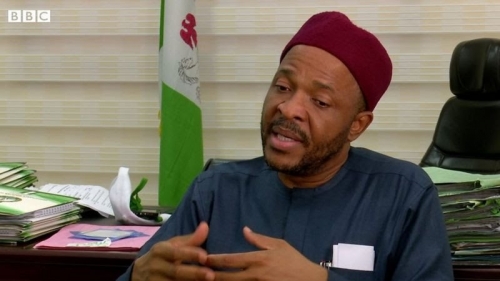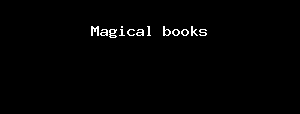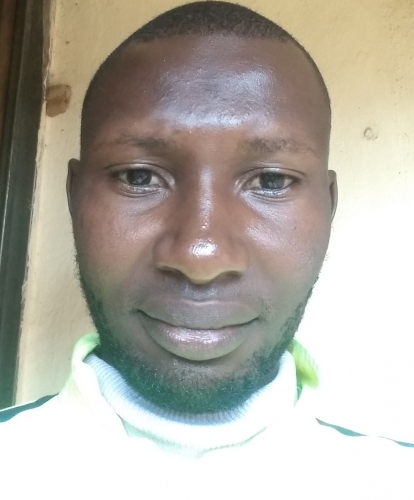
Nigerian schools resumption date and ASUU, goment universities plus parents fresh concerns

Minister of state for Education, Hon. Emeka Nwajiuba
Federal authorities don advice for caution as some state governments announce dates for reopening of schools.
Lagos and Osun states for southwest Nigeria say tertiary institutions go reopen from 14 and 21 September, 2020.
Nigeria Health minister say COVID-19 still get power to take life and very dangerous. Meanwhile, Academic Staff Union of Universities (Asuu) don warn Nigerian goment make dem neva reopen higher institutions now.
Asuu wey be di join bodi of Nigerian university lecturers want make goment wait until dem find solid ways to control di spread of di coronavirus. Di union say as tins be now e dey almost impossible for public higher institutions to practice social distancing.
Both primary, secondary as well as universities go reopen on 21 September 2020 for Osun state according to goment order to all schools for di state afta dem don dey locked down for more than six month sake of di Covid- 19 pandemic.
Even di Kogi state goment for north-central Nigeria on Tuesday, announce di reopening of schools at all levels on 14 September, 2020, including Primary, Secondary and Tertiary institutions inside di state, according to Wemi Jones di state Commissioner for Education, Science and Technology.
Dis move dey come few days afta Lagos state goment direct make basic schools resume for 14 September and tertiary institutions to resume for 21 September.
Currently, na only students for final year or national exam classes dey go school across di 36 states of Nigeria, since 4 August, 2020 in order to write examinations like WAEC and NECO.
Di Minister of state for Education, Hon. Emeka Nwajiuba say goment neva give date to reopen universities across di kontri but school resumption announcement wey some state goments dey announce dey cause parents to worry.
End of Twitter post, 1
Parents show mixed feelings as dia student resume school
Parents of students wey dey examination class for secondary schools don share dia reaction as dia goment don order say make students wey dey Junior and senior secondary school 3 to resume.
Some of dem wey follow BBC pidgin tok say e dey good as goment don say make dem go school while odas mind no too rest as sake of coronavirus pandemic.
After Nigeria goment, through di Ministry of Health, announce say school fit reopen for student wey dey exiting class, different state for di kontri also don follow to say same class fit resume for dia school.
Mrs Basirat Oyewole wey dey live for Modakeke area of Ife in Osun State, southwest Nigeria, say e dey good as di goment don allow make student go school.
She say di students wey dey dis classes no too small and dem go fit take care and observe safety measure like to wash dia hands and wear face mask. She add aay make goment ensure say student no too plenty for class. She say make dem no pass 20 for one class.
Anoda parent, Olajide Funke, say students suppose don resume long as dem fit don dey foget wetin dem learn for school.
"Dem suppose don reopen school since and make sure say student dey wear nose mask and dem dey wash dia hand," she say.
Funke say everybody sabi wetin dey happun for di kontri and activities no go stop sake of di pandemic.
But Jide Jinadu wey im pikin bin dey go school for Lagos State say make students neva reopen. Lagos state be di epicentre of coronavirus for Nigeria.
Student wey dey exist class resume school today afta Lagos State govnor, Babajide Sanwo-Olu, announce say dem fit resume.
"Make dem wait small so we go fit dey certain enough because dey still be children. Dem don finish school already. Na only WAEC remain for dem and and dem go fit write dat one aytime wey dem like," Jinadu tok.
A parent wey im pikin also dey Lagos,…, say na only God fit protest di children.
WIA DIS FOTO COME FROM,PIUS UTOMI EKPEI/AFP/GETTY IMAGES
"Dem dey tell all say dey do clean do school and say children go use face mask and wash dia hand but we dey hear dis tins everytime. So, Na only god fit protest dem," she say.
However, she say di students need resume so dem go fit write dia WAEC and oda external examination. She complain say her child don too fat for house. "He need go school to trim down small".
One parent for Ogun state wey say she also be teacher for di state, Adesomi Taiwo, say dem don ready to resume.
She said provision don dey ground to ensure say di students no plenty for class just as dem don tell student to come with dia face mask.
"Dem don tell us wetin to do and wetin di students too suppose do. DI school go provide soap and water for dem to wash dia hand. DI state go give all di student two face masks but dey will also buy dia own.
"Before we dey have up to 150 for class but we go reduce dem to 25 now. Wen dem also resume, we go teach dem how to do social distancing."
ASUU - Nigerian university lecturers concern
WIA DIS FOTO COME FROM,GETTY IMAGES
Even as some states higher institutions dey declare dia reopening date for Nigeria, federal institutions and some private universities insist say dem go only ask dia students to return when ministry of education do di announcement.
Authorities of some federal and private institutions say dem no get any plans at all to reopen dia school until di federal goment give dem di order to do so.
Chairman University of Lagos branch of di Academic Staff Union of Universities, Dr Dele Ashiru say, na di federal goment close di universities for di kontri and na di goment go still reopen am.
E say dem no get any resumption date because federal goment neva announce when dem go resume.
Private institution Covenant University also add dia voice to say although dem ready to resume anytime, dem dey wait for di kontri education authorities to to give dem informate on wen to resume.
Registrar of Covenant University, Dr. Oluwasegun Omidiora, say im school na "law abiding institution," dia for, dem no go open becos National University Commission (NUC), "neva give any information."
Im add say, "we dey wait to get communication from di federal ministry of Education on or before September 7.
For March, di federal goment of Nigeria bin order make all schools for di kontri, including primary, secondary and higher institution to close and since den dem neva give any counter order.
But in di last few days, goments for Lagos, Osun and Delta state, don announce make higher institutions - universities and polytechnic - resume school beginning from September 14 for Lagos state and Delta say na on di 21 of September.
Osun state goment announce school reopening
WIA DIS FOTO COME FROM,AFP
Osun state goment don announce say all schools for di state go reopen for 21 September 2020 as dem don dey locked down since March sake of di Covid- 19 pandemic.
Di Commissioner for Information and Civic Orientation, Mrs Funke Egbemode inside statement for dia website say na di decision di State Executive Council meeting make be that.
Di goment also release timetable for di 2019/2020 - 2020/2021 academic session.
End of Twitter post, 2
Goment explain say dis timetable wey dem announce na for only Primary and Secondary Schools, e add say Tertiary Institutions go reopen on September 21, but make dem plan their schedules.
Another thing we de for inside dis tori
September: 2020 movie release go see five 'correct' feems drop dis month
1st September 2020Kenyan Victoria Rubadiri win BBC World News Komla Dumor award
1st September 2020Top Tori
Informate me
Meet di 2020 BBC Komla Dumor award winner
1st September 2020Video,Game of Drones: Libya deadly war, 4,23
31st August 2020Video,'I dey fight for gender equality' - Solomon Buchi, 3,02
27th August 2020Video of how Daniel Prude take die dey make pipo blood hot
3rd September 2020© 2020 BBC. De external site no concern BBC. De way wey we de take go external link.

Loving books expands your knowledge Base and gives you pleasure. Having read many books, I still revel in books that gave me a sense of wonder when I was a young adult. Those books gave me a warm fuzzy feeling in my stomach and many years later, I still feel the same way just thinking about it. I am particularly enamoured of magical stories. You feel like you travelled to a new colourful country until you finish the book. Between the book covers, I tend to travel read. That out of body experience that makes you feel you are in the setting with all the characters. It’s as if you arrive in LaLa Land and everything is sprinkled in gold dust. Magical. I am a dreamer. I believe those stories I read many years ago have turned me into a storyteller. My fashion forward daughter Donna is also an aspiring writer and her first unpublished novel when she was twelve was a magical book.
Advertisement

Link socials
Matches
